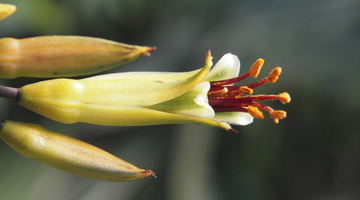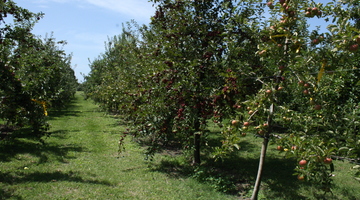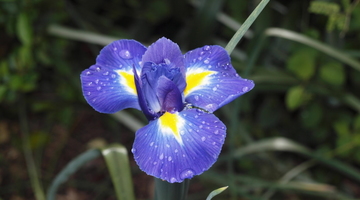

Flowering plants create seeds, which get spread away from the parents and grow into new plants in new places. Pollination has to happen before seeds can be made, so flowers have a range of ways ...
READ MORE

In this unit, students investigate trends and drivers and what may be possible and preferable attributes for new fruit varieties in the future. Purpose To understand the influences currently ...
READ MORE

This unit plan is designed for students in years 1–5. When someone mentions the word ‘butterfly’, what image pops into your head? Chances are it’s the monarch or the white butterfly, as these are ...
READ MORE

Next time you eat a kiwifruit, cut it in half and look at it before taking a bite. Look for the little seeds – most kiwifruit have about 1,000, so you can’t miss them. To get seeds in a ...
READ MORE

Flowering plants need to get pollen from one flower to another, either within a plant for self-pollination or between plants of the same species for cross-pollination to occur. However, pollen ...
READ MORE

What usually happens when you cut up a piece of fruit to eat or to put in a salad? If it is an apple, a pear, a peach or a plum, you probably cut out the seeds and put them in the compost bin ...
READ MORE

In this activity, students relate commonly eaten foods to different parts of the flowering plant life cycle. They use an interactive or paper-based graphic organiser. By the end of this activity ...
READ MORE

In this activity, students will look at flowers and identify the different reproductive parts. By the end of this activity, students should be able to: identify different parts of a flower and ...
READ MORE

In this activity, students match native flowers with their pollinators, basing predictions on the main characteristics of flowers pollinated by wind, insects or birds. By the end of this ...
READ MORE
Watch varroa mites (white juveniles and brown adults) on honey bees and learn how they spread viruses that kill bee colonies. Dr Mark Goodwin of Plant & Food Research shows hives being ...
READ MORE
See two different methods used to artificially pollinate kiwifruit and learn about them from Dr Mark Goodwin of Plant & Food Research. Dr Paul Martinsen, a research engineer at Plant & ...
READ MORE
Dr Mark Goodwin of Plant & Food Research explains what artificial pollination is and why it is needed for kiwifruit. Some work of the company PollenPlus is shown, including their QuadDuster ...
READ MORE

The life cycle of ferns is different from other land plants as both the gametophyte and the sporophyte phases are free living. This interactive illustrates the alternation of generations in ...
READ MORE

Use this graphic organiser to place the food cards where you think they belong. This activity can be done individually, in pairs or as a whole class.
READ MORE

An interactive that shows how early Māori used different fungi for food and medicine.
READ MORE